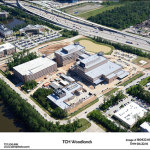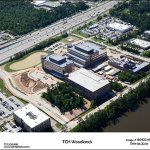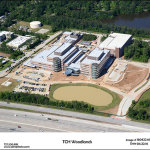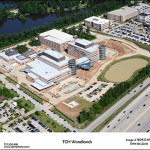 Texas Children’s Hospital is proud to announce the American College of Surgeons (ACS) has verified the hospital as a Level 1 Children’s Surgery Center.
Texas Children’s Hospital is proud to announce the American College of Surgeons (ACS) has verified the hospital as a Level 1 Children’s Surgery Center.
The one-year verification was awarded following an extensive pilot site visit in May 2015. During the visit, Texas Children’s assisted in the review and refinement of guidelines set forth by ACS with the goal of improving the safety and quality of pediatric surgery performed at centers across the country. At this time, Texas Children’s is among only two Level 1 Children’s Surgery Centers in the United States, and the only children’s hospital in Texas and the southwest region to earn this distinction.
“We are honored to be one of the inaugural hospitals to receive this esteemed verification,” said Texas Children’s Surgeon-In-Chief Dr. Charles D. Fraser Jr. “As a leader in pediatric surgical care, we believe it is important for children to undergo surgery with a focused, dedicated team of specialized pediatric surgeons, anesthesiologists, radiologists, intensivists, nurses, staff and support departments committed to pediatric care. We carefully track our outcomes with the goal of providing the best possible results. We are honored to be recognized for our commitment to high-quality care for our patients.”
A Level 1 verification requires Texas Children’s to provide surgery and anesthesia for all major pediatric specialties for children of all ages – from premature infants to adolescents. Additionally, the hospital must have not only the highest level Neonatal Intensive Care Unit (NICU), pediatric emergency medicine physicians and pediatric radiologists available all day, every day, but also the most robust data collection, outcomes assessment and quality improvement efforts.
A team of 25 physicians, nurses and members of the administration, anesthesiology, nursing, the outcomes and impact service, the pediatric intensive care unit (PICU), quality, radiology, surgery and transport teams served on Texas Children’s ACS verification committee.
The Department of Surgery at Texas Children’s represents more than 90 full-time pediatric-focused surgeons who are also faculty members at Baylor. Surgeons, advanced practice providers and more than 700 Texas Children’s staff members are dedicated to caring for and improving the health of children through patient care, education and research. The team’s efforts are evident in the more than 26,700 operative cases performed, more than 1,200 trauma admissions and 144,800 outpatient clinic visits in 2015.
For more information about Texas Children’s Department of Surgery, visit texaschildrens.org/surgery.
For more information about the Level 1 Children’s Surgery Center verification, visit the ACS website.










